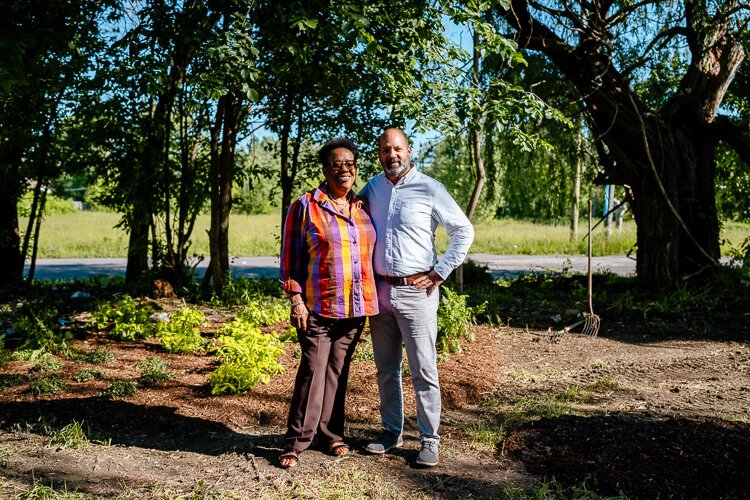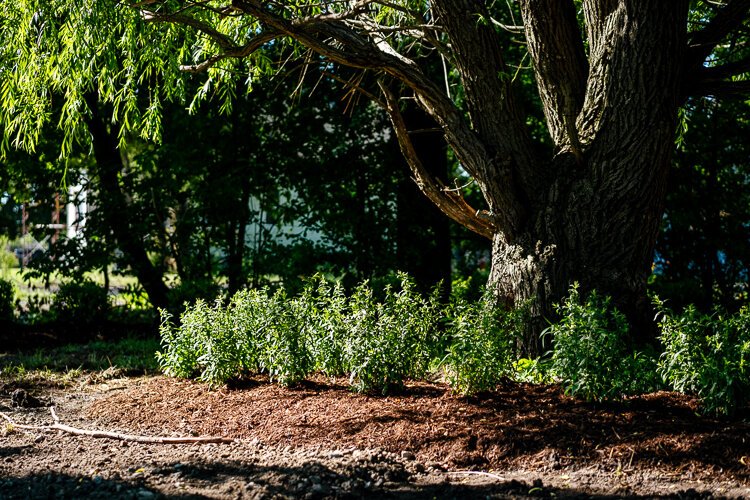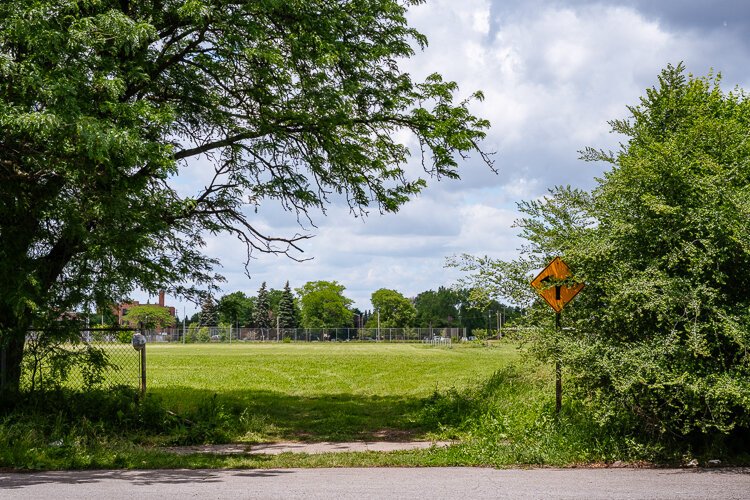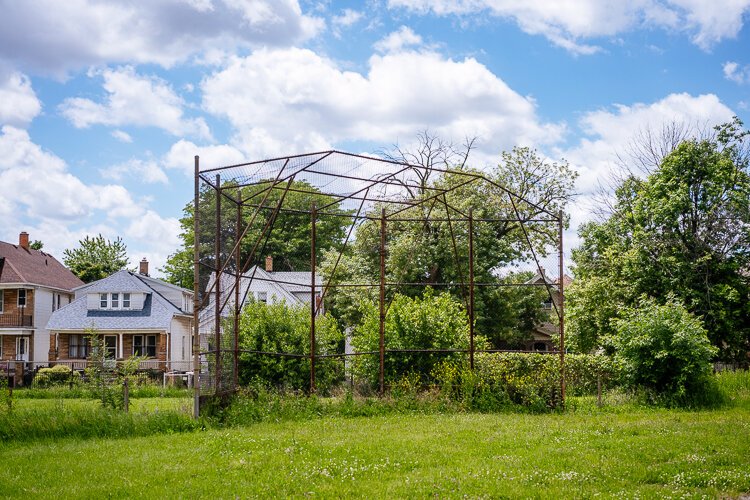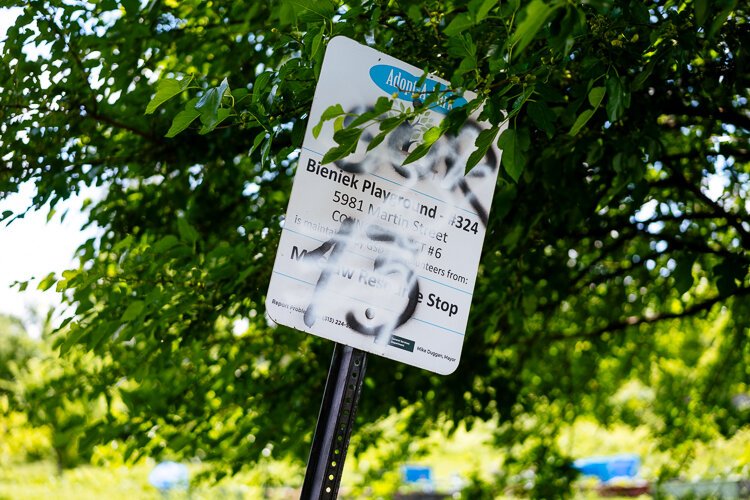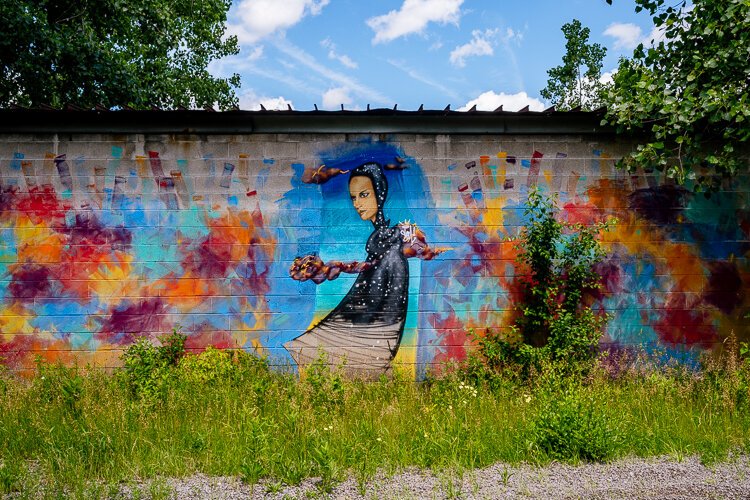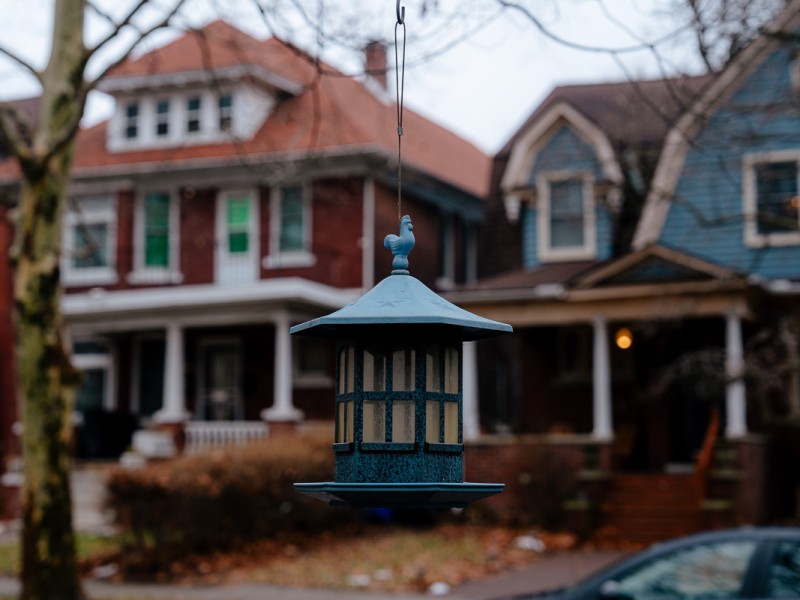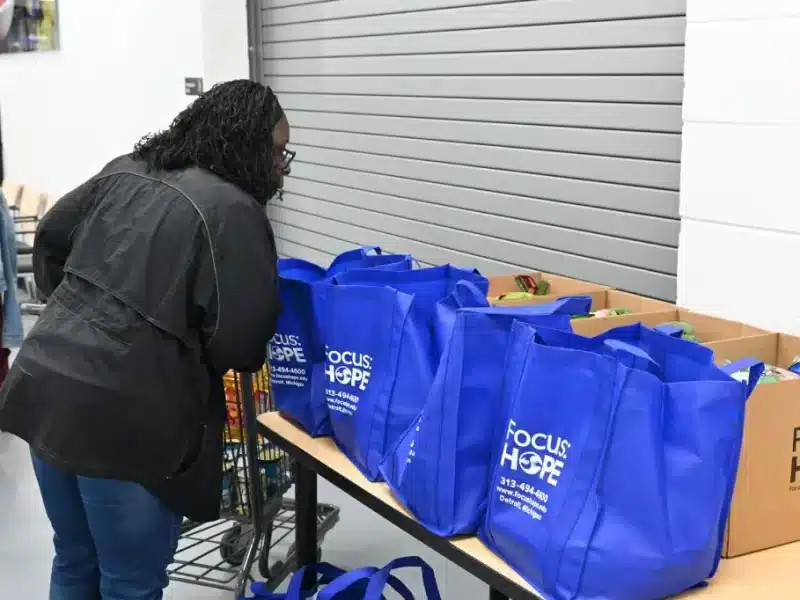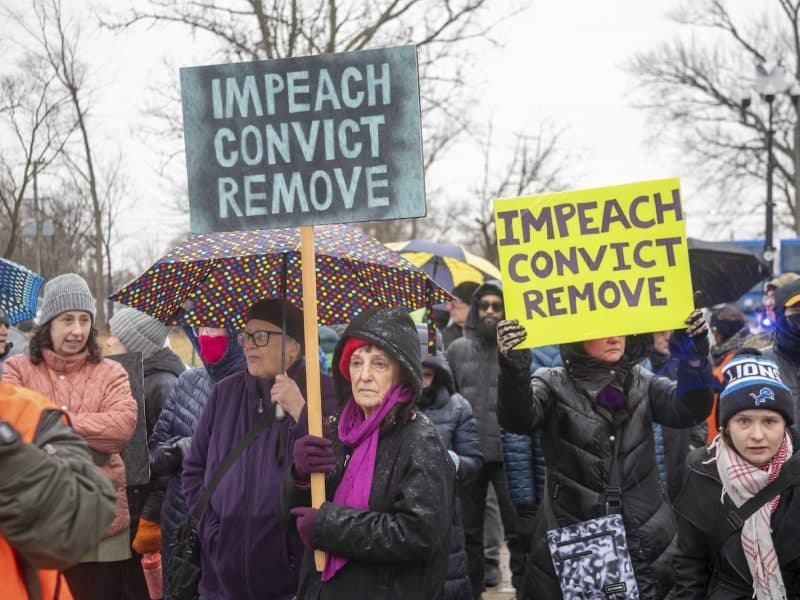Resilient Neighborhoods: This SW Detroit neighborhood will soon have a new pocket park and greenway
These once-neglected Detroit parks are getting a new lease on life — and some neighboring amenities — through a collaboration between local nonprofits and community members.
Until recently, Bieniek Park and Dingeman Park in Southwest Detroit’s Chadsey Condon neighborhood were often referred to as ‘ghost parks’, abandoned recreation areas that have fallen by the wayside.
Ethelyn Carroll, a Southwest Detroiter and president of the area’s United Block Club Council, remembers how bad things had become at the two parks a few years ago.
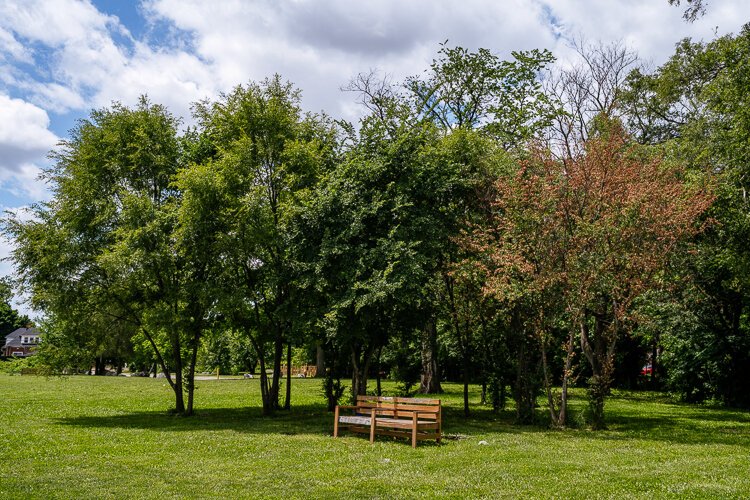
“The grass was not cut,” she says. “Weeds, rocks, dirt, tires. No fencing or boundaries. Nothing there. Nothing the kids could play on. It was just vacant open space.”
Detroit stopped maintaining Bieniek Park, located at the intersection of Kirkwood Street and Braden Street, during a period following the city 2013 bankruptcy. Though, in 2015 the city’s General Services Department disputed the use of the phrase “decommissioned” to describe rumors of potential park closings at Bieniek Park and 75 other Detroit parks connected to a draft of planning document that been made public. That said, Bieniek Park is currently an active park that is being maintained by the city. Dingeman Park, which is adjacent to Munger Elementary and Middle School, fell into disrepair after the city sold it to the Detroit Public School district (now the Detroit Public Schools Community District) in the early 2010s.
However, the situation has improved at the two recreation areas in the last few years. Friends groups have adopted both parks and basic maintenance like the mowing of grass is being attended to again. Dingeman still suffers from overgrown weeds, and there’s a lack of functioning play equipment for children at both sites, but work is underway to improve the locations further.
And In collaboration with other neighborhood groups and residents, Bridging Communities, a nonprofit that serves Chadsey Condon, is working to install a new greenway that will connect Dingeman Park with Bieniek Park. The project will also feature a new pocket park that’s set to open later this month.
Caroll, who says the neighborhood suffers from a lack of quality recreation areas, is looking forward to seeing the project realized.
“I’ve been down to the Dequindre Cut, and I think a greenway is a wonderful way to connect all our neighborhoods,” she says. “I’ve seen a lot of progress, so I think it’s going to be great.”
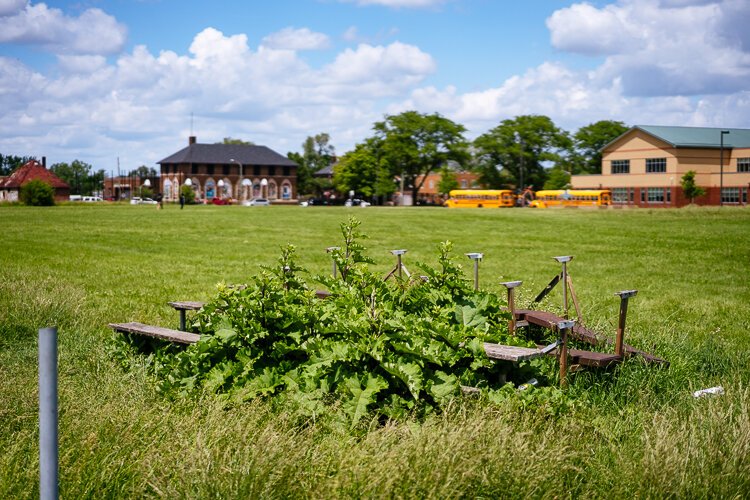
Path to a greenway
The effort to install the new greenway and pocket park grew out of Chadsey Condon’s 2019 development plan, a vision for the neighborhood facilitated by Community Development Advocates of Detroit (CDAD). Bridging Communities, a CDAD member organization, created the plan with residents and other local stakeholders through a variety of participatory community meetings, focus groups, and surveys. Issues related to public space emerged as one of the top three concerns identified during the planning process.
“One of the [top priorities] was looking at activating more open space and creating opportunities for recreation throughout the community,” says Dan Commer, Bridging Communities Neighborhood Stabilization manager. “This was really important, because the nearest rec center for this community is more than 2.7 miles away, which is Patton Park.”
This lack of options was of particular concern to parents, as the multicultural neighborhood is home to a relatively high concentration of children and youth. The
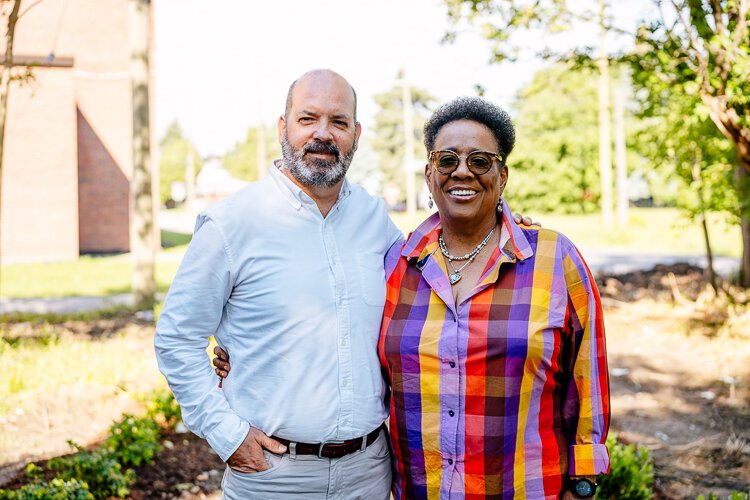
48210 Zip Code where Dingeman and Bieniek Park are located is home to 10,637 youth ages 18 and below, according to 2019 American Community Survey data compiled by Data Driven Detroit. That’s about 35.4 percent of Chadsey-Condon’s total population.
Blight was also a motivator in getting the greenway project going, according to Phyllis Edwards, Bridging Communities’ outgoing executive director.
“People were doing illegal dumping back where [Bieniek] Park is,” she says. “And so we tried to find out a way how we could repurpose a vacated alley [and] do something with the green space to stop some of the blight.”
Working with other residents and community groups, like Advocates for Dingeman Park, Bridging Communities became involved with efforts to clean up the recreation spots and the surrounding community. It also applied for and was approved a $150,000 Kresge Innovative Projects: Detroit (KIP:D) planning and implementation grant to begin developing the greenway as well as a $10,000 Local Initiatives Support Corporation (LISC) planning grant through ESPN RePlay.
In collaboration with the McGraw Resource Stop, a collaborative made up of local community organizations and residents, is currently in the process of developing the Braden Street Greenway. While the details of the pathway are still being hashed out, the roughly quarter-mile pathway will connect the two Chadsey Condon parks via a vacant alley running parallel to Braden Street. And, as fate would have it, the first phase and gateway Park for the highly anticipated Joe Louis Greenway is being built off of Warren Avenue about a quarter mile from Bieniek Park.
“The idea is you could go from Dingeman Park down the quarter-mile greenway through Bieniek Park and then with some wayfinding. through the neighborhood to the Joe Louis Greenway,” says Commer. “It will be creating this better-connected community and connecting Chadsey Condon to the Joe Louis Greenway.”
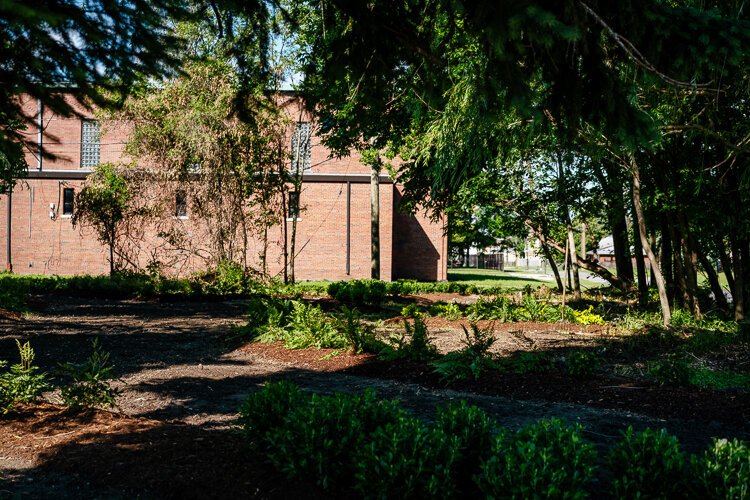
A pocket park for Chadsey Condon
While the Braden Street Greenway isn’t expected to be completed until December 2023, the new pocket park will be opening later this month.
A small ribbon-cutting ceremony for the new pocket park will be held on June 23. A larger public gathering celebrating the service of outgoing Bridging Communities director Phyllis Edwards will be held the following day, June 24, from 3 to 6 p.m.
The new public space has been a long time coming, from Edward’s perspective, and she’s eager to see community members making use of it.
“This is an opportunity for intergenerational interaction,” she says. “Kids can come there. Families can come there. Our seniors can go and sit and meditate. We’re trying to make it an intergenerational park that’s enticing to everyone.”
The roughly one-acre park, which has yet to be named, will be located at the midpoint of the trail at 5697 Braden Street. In addition to pleasantly arranged greenery, it will feature two benches, a WiFi station, and a table with a built-in board for chess and checkers. The furniture is being built with reclaimed materials supplied by Architectural Salvage Warehouse of Detroit, including wood from a local church that was recently torn down.
Bridging Communities secured land for the roughly one-acre pocket park through a maintenance agreement with the Detroit Land Bank. Planning for the new park began about a year ago and was overseen by Ujijji Davis Williams of JIMA Studio, a Black-owned landscape architecture firm based in Detroit.
The pocket park and the area slated to become the greenway has already seen some community use. In 2020, it was part of Detroit Month of Design activities and last year it was the site of a Sidewalk Festival put together by the nonprofit Sidewalk Detroit in collaboration with Bridging Communities, Brilliant Detroit, and other partners.
Augusta Morrison of Sidewalk Detroit enjoyed the experience of working on the festival and see local residents engage with the space.
“Hundreds of people attended to experience the art, music, dance, and installations. We activated what is a very non-traditional performance space and utilized some of
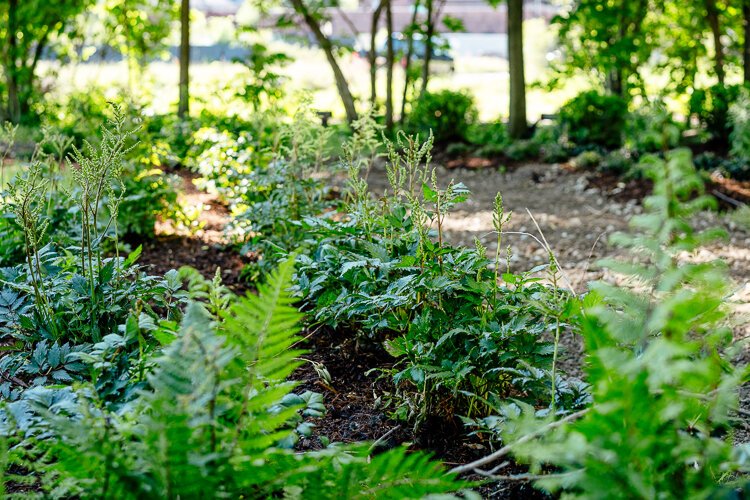
the existing infrastructures, like the flower stage, and created a full-day experience for the residents of that neighborhood,” she says. “We hope there will be many more events like that there in the future.”
Beyond the greenway and pocket park, there is some other good news on the horizon. Detroit Parks & Recreation is planning on kicking off a community engagement process for renovations to Bieniek park in the next few months. Bridging Communities is also looking into the possibility of bringing a mini-pitch soccer field and basketball court to Dingeman Park. For Commer, these and the other developments are a wonderful example of the change a local nonprofit can bring about by collaborating with others in its community.
“We’re trying to demonstrate that in a Detroit neighborhood that’s not part of the Strategic Neighborhood Fund that had been overlooked — with parks that were not cared for — has been so resilient that we’ve actually created community spaces that are comparable to what you might find along the RiverWalk.”
Update 6/14/22: This article has been changed to reflect that Bieniek Park is currently an active city park that is being maintained by the city and also that plans are underway for a community engagement process to help determine renovations there.
All photos by Nick Hagen.
Resilient Neighborhoods is a reporting and engagement series that examines how Detroit residents and community development organizations are working together to strengthen local neighborhoods. It’s made possible with funding from the Kresge Foundation.
